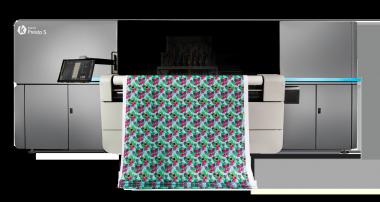Monforts customers at Première Vision Digital Denim Week
Denim manufacturers employing Monforts technologies showcased their latest activities, including sustainable fabric manufacturing, new advances in fibres, dyes and chemicals, as well as process and supply improvements and recycling options, at Première Vision’s Digital Denim Week, held from July 5-9.
The users of Monforts equipment included AGI Denim (Pakistan), Azgard 9 (Pakistan), Berto (Italy), Bossa (Turkey), DNM (Turkey), Kilim (Turkey) and Orta (Turkey).
The new Naveena Denim Mills (Pakistan) Holistic collection, for example, employs a suite of sustainable materials such as organic cotton and post-consumer and post-industrial waste cotton that has been shredded and recycled at its in-house unit in Pakistan.
Supply chain transparency is also becoming increasingly important, and Turkey’s Bossa is now sharing information on its dyes, energy sources and recycled content use with its customers. For organic cotton in particular, Bossa provides QR codes with which brands can identify the names of individual farms and their locations, as well as details such as the origins of specific seeds and the use of irrigation by growers.
Turkey’s Orta’s new Denim Route – inspired by the historical Silk Road for trade between the East and West – is an interactive supplier map detailing the regions from which it sources cotton, dyestuff, chemicals and various fibres to complement its other transparency initiatives.
Meanwhile, a living and breathing piece of clothing that absorbs carbon dioxide while simultaneously producing oxygen was introduced at Digital Denim Week 2021 by Azgard 9 (Pakistan) .
Monforts Denim denim finishing Première Vision Digital Denim Week Première Vision digital
Monforts / AWOL
















